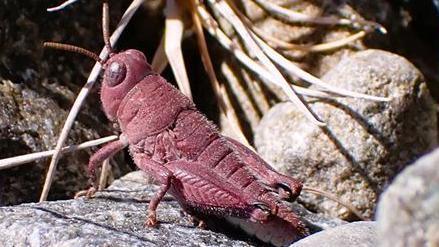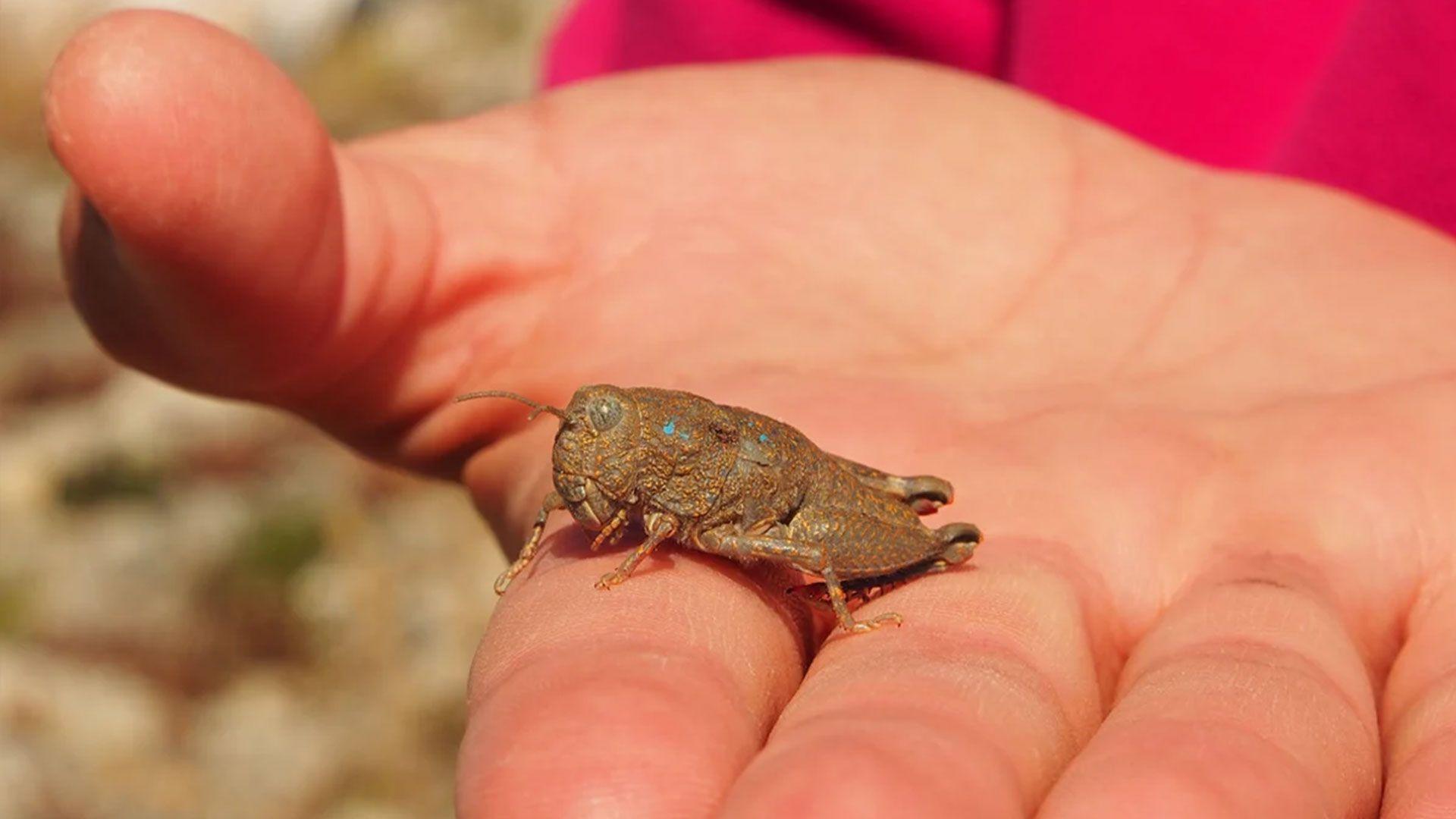Have you ever seen a grasshopper like this?

It was an exciting moment when rangers spotted this pink wonder
- Published
If you get up close, there are lots of amazing tiny creatures you can spot in nature - but it's unlikely to find something as rare as this.
New Zealand's Department of Conservation (DOC) has released this special photograph of an ultra-rare pink grasshopper that rangers spotted at Te Manahuna, on New Zealand's South Island.
Ranger Jen Schori was called over when her team saw this unusual colour of grasshopper, making it a bit of a "celebrity".
"I'm just so happy I got to see one after all these years. Getting out into nature in this part of the world is really special."
More amazing animals:
Check out this rare sighting of a white pudu, the world's smallest deer
- Published10 September
Rare bright orange shark discovered in Costa Rica
- Published26 August
Wildcats could make a return from extinction in England
- Published5 days ago

These grasshoppers are much bigger than ones we might see in the UK
In the UK, there are 11 species of grasshopper, all around roughly 2cm long.
The pink grasshopper that was spotted in New Zealand is a female robust grasshopper which, at around 4cm long, is the country's largest lowland grasshopper.
The species are listed as nationally endangered by New Zealand's DOC, making this robust grasshopper even rarer.

The pink grasshopper was spotted near Lake Tekapo/Takapō, which is on New Zealand's scenic South Island
Jen says: "Pink grasshoppers are exceptionally rare. It's likely caused by a genetic mutation called erythrism which results in an over production of red pigment and less of the usual natural pigment that the species has."
Pigment is what gives an animal's skin a certain colour.
The bright colour of this celebrity grasshopper could make it more vulnerable to threats as it's easier to spot, but Jen hopes for more pink grasshoppers to make a name for themselves.
"They do live up to their name, they're quite robust and the females are double the size of the males... [maybe] we will see some more pink ones."
